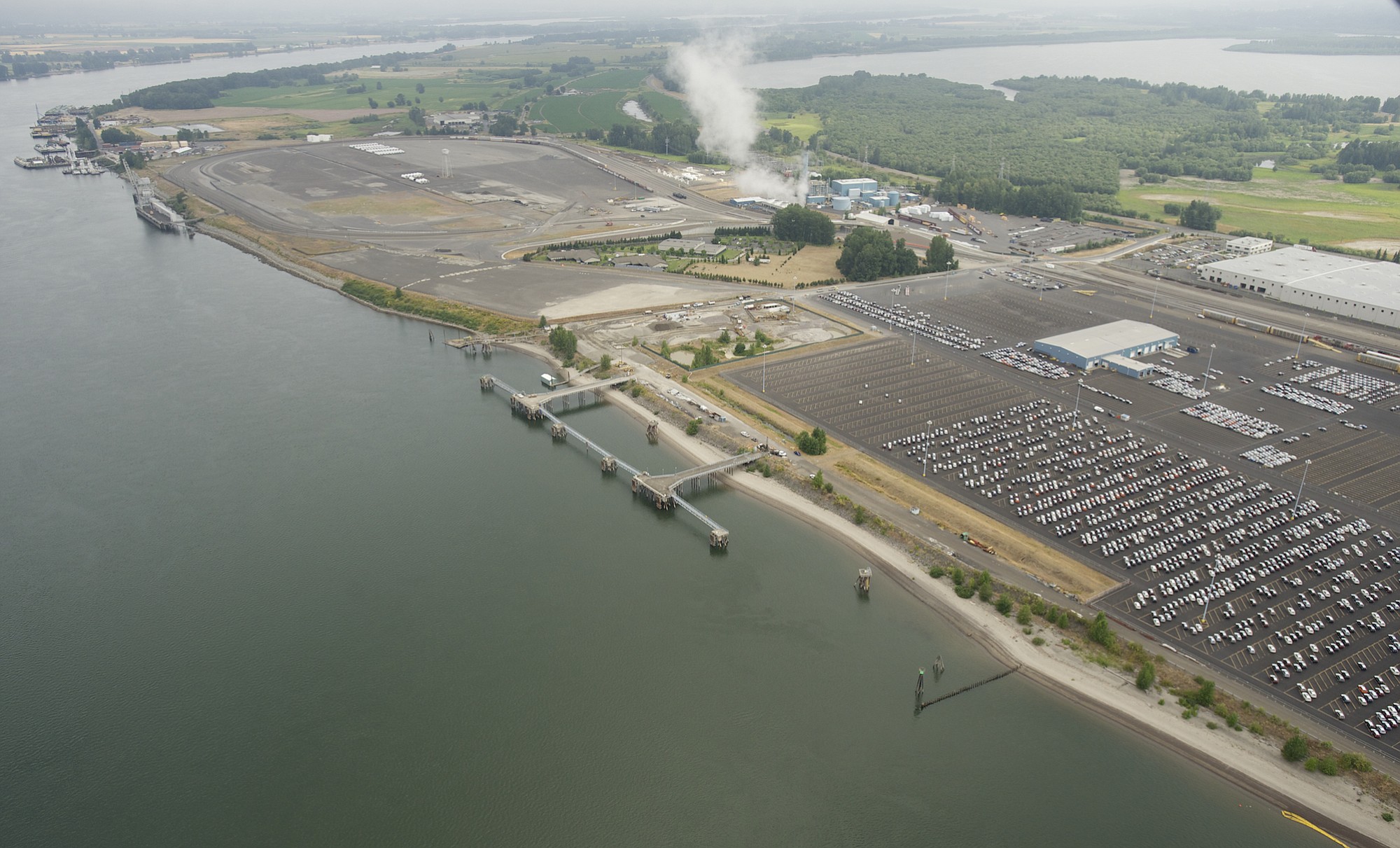A plan to build the nation’s largest oil-by-rail terminal in Vancouver does not comply with the federal Clean Water Act, and should not be granted a key permit until its impacts are fully addressed, according to a letter the U.S. Environmental Protection Agency sent to the U.S. Army Corps of Engineers last week.
The Corps is considering whether to grant its blessing to the proposal by Tesoro Corp. and Savage Cos. to build a terminal that would handle an average of 360,000 barrels of crude oil per day. The oil would arrive by rail and leave by ship.
The Corps of Engineers must issue a permit for in-water work before the facility can be built. But officials have said the Corps is somewhat limited in what it can and cannot analyze in its regulatory role.
The EPA’s letter, submitted as part of a monthlong public comment window, raised a host of concerns the agency believes should be included in the review. The EPA noted a potential impact area that includes 1,493 miles of railroad track in Washington, the entire Columbia River downstream of Vancouver, and marine areas off the coast. The letter highlighted the risk of oil spills and leaks, and said proposed mitigation measures to minimize accidents “may not be adequate.”
The EPA wasn’t the only federal agency to raise concerns about the project. Days earlier, the National Park Service sent a letter of its own listing a series of affected natural and cultural sites — including Fort Vancouver National Historic Site — along the route that would carry oil to and from the Vancouver terminal. The park service also raised concerns about climate change and suggested emissions from the facility could accelerate the loss of glaciers at Glacier National Park in Montana.
Both letters caught the attention of Columbia Riverkeeper, an environmental group that opposes the terminal.
“I think that this could be a game-changer,” said Lauren Goldberg, staff attorney Columbia Riverkeeper. “I think the fact that two other federal agencies are weighing in with significant concerns … should and will change the discussion around how the federal government is going to decide whether to issue permits or not.”
Tesoro and Savage, for their part, believe EPA’s concerns will be addressed during the ongoing state review, said Tesoro spokeswoman Jennifer Minx.
“We’re still reviewing the letter, and we expect the (state review process) will address the issues mentioned in the EPA comment,” Minx said in an email. “We are confident that the proposed terminal can be designed, constructed and operated in a safe and environmentally responsible manner.”
If built, the Tesoro-Savage terminal would receive crude from the Bakken oil fields of North Dakota. Oil would arrive by rail — as many as four full trains per day at full capacity. It would then be transferred to marine vessels and sent down the Columbia River en route to other West Coast facilities, according to the companies, doing business together as Vancouver Energy.
The project is currently being reviewed by the state Energy Facility Site Evaluation Council. That panel will make a recommendation to Washington’s governor, who holds the final say on a permit. But there are other jurisdictions — including the Corps of Engineers — that must issue permits along the way for the terminal to materialize.
In its letter to the Corps, the EPA recommended a broad, cumulative analysis that considers not just the Tesoro-Savage terminal but other regional facilities that handle crude oil. That review should account for “all potential impacts from oil by rail projects that have been permitted, that are pending, and that are reasonably foreseeable throughout the state and region, including British Columbia.”
It’s unclear whether the Corps would take on such an expansive analysis. In announcing its decision to individually review the Tesoro-Savage terminal in July, the Corps said this:
“For this proposal, associated activities that are beyond the control and responsibility of the Corps, such as mainline rail service to bring crude oil to the terminal, cannot be analyzed as part of the permit process.”
Tesoro and Savage submitted their application to EFSEC in 2013. Several delays have pushed the release of the project’s draft environmental impact statement until late November at the earliest.
The sweeping document will offer the most detailed look yet at the proposed terminal. It will also trigger a new round of public comment.
Columbian staff writer Aaron Corvin contributed to this story.




